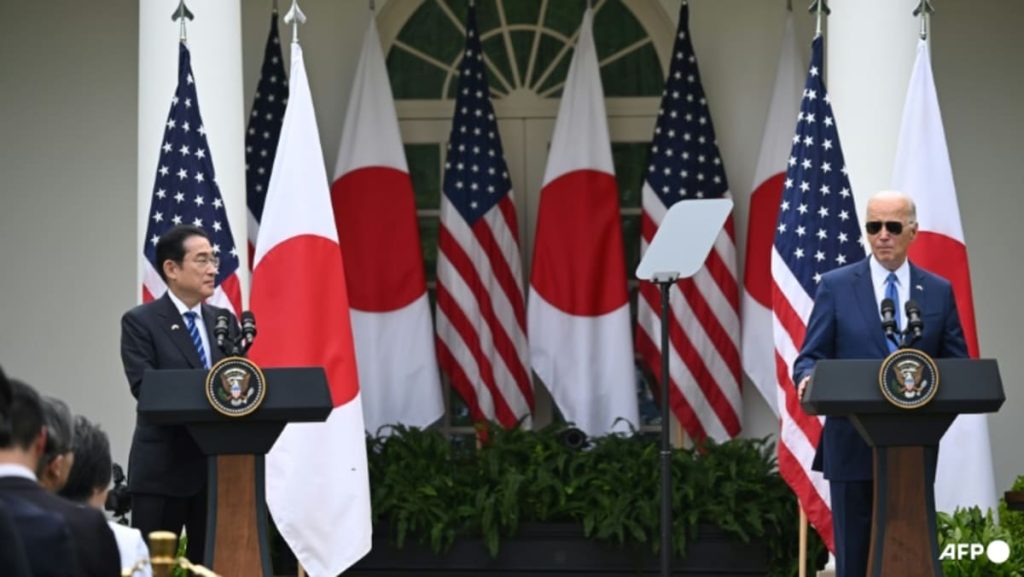US President Joe Biden and Japanese Prime Minister Fumio Kishida are strengthening their alliance with increased joint military cooperation and the introduction of a new missile defense system in response to aggressive actions by China and Russia. During a joint news conference at the White House, Biden described this as the most significant upgrade in their alliance since its establishment. The leaders discussed issues in the Indo-Pacific region, Ukraine, and the Gaza conflict, with a focus on upholding international order based on the rule of law.
Kishida emphasized the importance of resisting unilateral attempts to change the status quo by force or coercion, stating that such actions are unacceptable regardless of where they occur. The US and Japan are committed to responding to challenges from China and other nations. Kishida pointed out the relevance of Russia’s aggression in Ukraine to East Asia, warning that similar scenarios could unfold in the region if left unaddressed. The leaders’ discussions included the tense relations between Taiwan and China, indicating their commitment to promoting stability in the Indo-Pacific region.
The partnership between the US and Japan is crucial for maintaining security and stability in the face of growing threats from China and Russia. Biden and Kishida’s discussions highlighted the need to counter aggressive actions by these countries through a united front. The new missile defense system represents a concrete step towards enhancing their defensive capabilities and deterring potential adversaries in the region. By working together closely, the two nations aim to address current challenges and safeguard international norms.
Kishida’s warning about the potential implications of Russia’s actions in Ukraine for East Asia underscores the interconnected nature of global security threats. The ongoing conflicts and tensions in different parts of the world have implications beyond their immediate regions, requiring a coordinated response from like-minded nations. By addressing these challenges collectively, the US and Japan seek to uphold the rule of law and deter any attempts to disrupt the existing international order. This approach reflects a commitment to defending shared values and ensuring peace and stability in the face of evolving security risks.
The discussions between Biden and Kishida also touched on the complexities of the Taiwan-China relationship, which is a source of tension in the region. Both leaders reiterated their commitment to promoting stability and peaceful resolution of disputes in the Indo-Pacific. By emphasizing the importance of upholding international norms and respecting the sovereignty of nations, they signaled their readiness to address any attempts to undermine regional security. The US-Japan alliance serves as a cornerstone for ensuring the security of nations in the Indo-Pacific region and countering potential threats from assertive actors like China.
Overall, the meeting between Biden and Kishida underscored the shared commitment of the US and Japan to enhancing their alliance and addressing common security challenges. By focusing on the Indo-Pacific region, Ukraine, and other global conflicts, the leaders demonstrated their willingness to cooperate on key issues affecting international stability. The new missile defense system and increased military cooperation reflect a proactive approach to countering emerging threats and safeguarding the rules-based international order. Through continued collaboration and mutual support, the US and Japan aim to advance their strategic partnership and contribute to peace and security in the broader international community.















